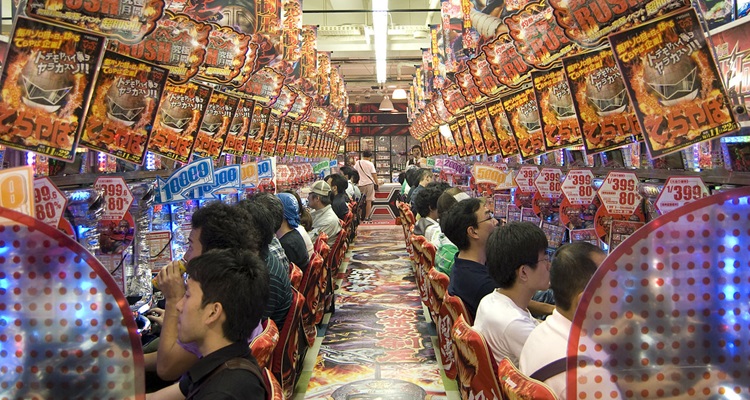While the Japanese government’s enactment of “Act Promoting Implementation of Specified Integrated Resort Areas” late last month will allow high stakes gambling in Japan for the first time, currently, public sporting events such as horse and bicycle races are legal to bet on and the country’s pachinko parlors provide low-cost gaming and a significant source of revenue.
While some estimates have placed potential annual revenues from casinos in Japan as high as $40 billion, current revenue from pachinko and slot machines is equivalent to more than 4 percent of the country’s gross domestic product. Data compiled by Bloomberg from the Japan Productivity Center Leisure White Paper 2015, indicates that pachinko and slot machine revenue in Japan far eclipses that from machines in Macau, Nevada, and Singapore. The country’s gamblers wager more on pachinko slot machines than is wagered in Las Vegas, Singapore, and Macau combined, according to the report.
The market, however, is shrinking, with the number of pachinko parlors down 40 percent in 2015 to 11,000, as a new generation seeks other forms of entertainment.
The newly passed bill clears the path for billions in investments and sets the stage for Japan to become one of the most lucrative gambling markets in the world, bowing only to perhaps Macau, the reigning king. However, while the first step, ‘facilitation’ has been implemented, before things move forward, ‘implementation’, will go beyond basic policy and process, i.e. political wrangling within the Diet, legal fights over implementation, and lobbying efforts at the national and local levels. All of which could delay actuation for several years before ground is ever broken and likely means that there is not enough time to open an integrated casino resort before the 2020 Summer Olympic Games which will be held in Tokyo.
Meanwhile, global casino giants such as MGM Resorts International and Hard Rock International are jockeying for positioning while a team of legislators prepares to draft new regulations designed to select operators and regulate the soon to be Japanese casino industry.
If the new casinos allow Japanese customers to gamble, some people will be attracted away from pachinko, but the casinos probably won’t have too great of an effect on other types of gambling in the country, according to Masatoshi Yamamoto, a regional government, gambling and finances analyst at Mitsubishi UFJ Research and Consulting, as reported by Bloomberg.



